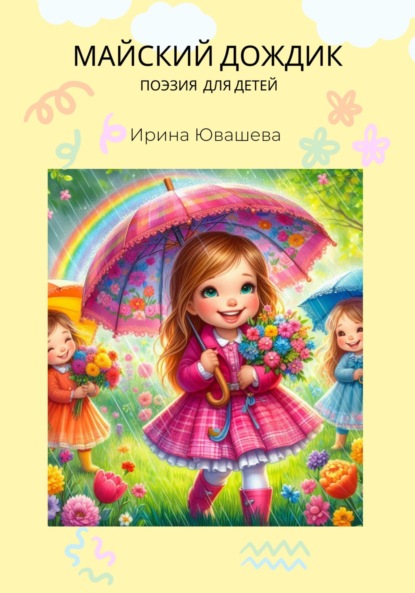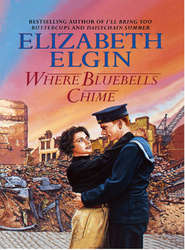По всем вопросам обращайтесь на: info@litportal.ru
(©) 2003-2024.
✖
The Linden Walk
Настройки чтения
Размер шрифта
Высота строк
Поля
Keth was laughing, now. With disbelief Daisy supposed, but laughing, for all that.
‘The nice man threw in a full tank of off-the-ration petrol. In gratitude it must have been.’
‘Daisy Purvis!’ He kissed her soundly. ‘You are a witch! Mary Natasha Purvis, your mother is a witch!’
‘Mm. Mummy’s got a magic name,’ Daisy laughed. ‘And Mary is getting hungry. Go on, then. Open it! Get inside!’
‘I love you,’ Keth whispered, but already the kitchen door had banged behind her.
He ran his hand over the shiny, slippery bodywork, then said again, ‘I’ll be damned.’
His hand shook as he pushed the key in the lock, then he sat in the unfamiliar seat, sniffing the newness smell, wondering how any one man could be so lucky. And not just car-lucky. Lucky to survive the war, to get out of France. Lucky to have Daisy and Mary Natasha. And of course he would take his mother to West Welby to see his father’s grave. Hampshire was a long way away, but somehow he would get petrol; on the black market, if he had to. But he would take her there, stay overnight, make a real outing of it – if you could call a visit to a grave an outing.
He ran his hands round the steering wheel, then wiggled the gear lever. Tomorrow, he would take it on the road. He wondered what the boys at school would say on Monday when Sir arrived in a brand-new car; wondered what Drew and Bill would say. Drew would know whose money had paid for it; Bill would not. The Money. Daisy’s secret.
And there was another grave he would visit. He had thought to do it for a long time; now it had become a must. He must go to France, to Clissy-sur-Mer and find the grave of a sixteen-year-old girl – if she’d been given a decent burial, that was. But at least he would go to Tante Clara’s house, perhaps see the lilies in the back garden, ask at the bread shop for news of Madame Piccard and a girl called Hannah Kominski who had become Elise Josef on a forged passport. Codename Natasha. He had called his daughter for her and for the people in Clissy-sur-Mer who had died so he could get a package back to the stone house, in deepest Argyll. He drew in his breath, tapping his forefingers on the wheel, remembering Castle McLeish and a submarine – the Selene. And a tipsy-winged plane called a Lysander that flew him and the package to safety, the night Natasha died. Daisy knew little about France. He had not been able to tell her. Signing the Official Secrets Act made sure he did not.
‘Why Natasha?’ she asked when he had chosen it as Mary’s second name, and all he had been able to tell her was that it belonged to a sixteen-year-old girl who had died.
Well, he was going to France just as soon as the government lifted the ban on travel abroad, and if it meant telling Daisy every single word of what happened there, then he would and damn the trouble he might get himself into. Daisy would understand, once she knew. Knowing her as he did, she would insist that he make the sentimental journey that would help ease his conscience. When a man was as lucky as Keth Purvis, it was the only way he could tip his cap to Fate, and ask that he might be allowed to keep what was so precious to him. Nothing to do with the car. The car had only brought things to a head. Too much luck. He had to make amends.
He got out of the car, locked it, then opened the kitchen door. Daisy was sitting there, Mary at her breast. It was a sight he never tired of because it made Daisy even more beautiful. She looked up, and smiled.
‘All right, now? Got over the shock?’
‘I think so. Thank you, darling.’
He bent down to kiss her. Later, when Mary was asleep and they had eaten supper, would be the best time to talk.
‘Sweetheart,’ he whispered. ‘There’s something I’ve got to tell you. I’m not supposed to, but I don’t care.’
‘About the war, Keth – your war?’
‘Yes. But you half knew, didn’t you, that I didn’t spend all the war code breaking.’
‘Sort of. France came into it, and someone called Natasha. That much you admitted to, and then you clammed up.’
‘I had to. I’m still bound by the Official Secrets Act. For thirty years, I was told. But let’s see Mary off to bed and have our supper. Then I’ll tell you.’
‘You don’t have to, Keth, though I would like to know; clear things up, kind of. And Mary’s finished, now. Can you get her wind up for me, then I’ll make a start on the meal.’
Keth held out his arms for his daughter, loving the milky, baby-soap smell of her, loving her so much it made him afraid.
‘The new car, darling.’ He kissed the nape of Daisy’s neck as she bent over the cooker. ‘I still can’t believe it. How do I begin to say thank you?’
‘By winding Mary and getting her to sleep for me.’ She turned, kissing him provocatively. ‘And that’s just for starters.’
‘I love you,’ he said softly. ‘But I don’t have to tell you that, do I?’
‘Yes, you do. Every day. There’ll be trouble if you ever stop. Now get from under my feet, Keth Purvis. I’m busy!’
‘You sound just like your mother,’ he laughed, then laid his daughter over his shoulder so she could snuggle her little soft face into his neck. Then he began a heel and toe rocking movement. It always got her to sleep. He laid a hand protectively over the back of her head, wondering how any woman could find the strength to give away her child.
‘I’m adopted. I don’t know anything about my mother, except that she wasn’t married and couldn’t keep me. I only know that I was born in Paris and that she was called Natasha. That’s why I took it as my codename,’ Hannah-Elise had told him.
Give his little girl to another woman then turn, and leave her? Give Mary away, never knowing that before she reached womanhood she would die, be killed?
‘I think she’s asleep,’ Keth whispered chokily.
‘Then take her up, will you? The cot’s ready. Careful, now.’
Daisy switched on the hall and landing lights, watching her husband carry their child to bed, thinking how lucky she was; always had been. And how grateful she was to be so loved.
SEVEN (#ulink_b16c34ea-1020-51a1-b49e-2d5d7470f35b)
‘That’s it, then.’ Tom Dwerryhouse unfastened his brown leather leggings, then eased off his boots. ‘No more shoots till the New Year. Can’t say I’m sorry. It’s hard work, organizing those syndicates. Most of the guns haven’t got a dog with them, and wouldn’t dream of using a loader. Not like shoots used to be, Alice. And before you say it,’ he hastened, ‘I know that leasing out the shooting keeps me in a job, but some of that lot need an eye keeping on them. Think they’re still in the war, and taking pot shots at anything that moves.’ He held his hands to the fire, then gazed at the table top and the paraphernalia of dressmaking spread there, instead of a white cloth and cutlery. ‘Supper a bit late, is it?’
‘Unless you’ve lost your sense of smell, only by ten minutes. It’s all in the oven, ready to dish up. Pheasant casserole. By the time you’ve washed your hands I’ll have cleared this lot away. Told you, if you think back, that I didn’t want to be last-minute with my dress for the wedding, and I was right. Wedding brought forward, now, to April.’
‘Aye, lass, but that’s still near on five months away.’
‘I know that. And I’m glad I didn’t buy anything flimsy, with June in mind. Must have known to buy something a bit more substantial. April can be cold, sometimes. Can’t go far wrong with a nice bit of fine wool, though heaven knows why I chose this colour – apart from it going nicely with my hat, of course.’
‘I like it. You’ll look bonny in it. What colour would you call it, Alice?’
‘Apricot, and it’ll never be out of the dry-cleaners, if you want my opinion.’ Carefully she gathered swathes of material and the pieces of paper pattern pinned to them. ‘But never mind. April is the best month for weddings. Our Daisy’s was perfect. So get out of your best suit and put something comfortable on. Five minutes, and supper’ll be on the table.’
Pheasant, with carrots and baby onions and jacket-baked potatoes. Casseroling was all she could do with the old bird Tom had brought home yesterday but welcome for all that, when meat was as hard to come by as it had been in the war.
But the war was over, and Daisy and Keth and Drew safely back from it; Lyndis, an’ all, thanks be. She heard Tom walking overhead and the creaking of the wardrobe door. Nasty old month, November, but Keeper’s Cottage was snug and warm, and there was a good play on the wireless tonight. And with a little new Sutton due and Tatty getting wed next month, and Christmas to follow, it wasn’t a bad old world, Alice was bound to admit. Better by far than the day Daisy had left for Dunfermline to be a Wren, and the war looking like it would go on forever.
Yet it had been over these three years gone and herself a gran, and Daisy living hardly a cock-stride away. Aye, and Keth with a new car and half of Holdenby green with envy.
‘Aaaah.’ She billowed out the tablecloth then let it fall to a sigh of contentment, smiling at her husband more comfortable now in corduroy trousers that had seen better days, and the sweater she knitted for his last birthday. His fifty-seventh and him as good to look at, still, as the day she’d first met him in Brattocks Wood.
‘So what have you been doing with yourself this afternoon?’ Tom sat in the fireside rocker, filling his pipe then laying it aside in the hearth to be smoked when supper was cleared away and Alice sitting opposite him, knitting.
‘Doing? Well, apart from laying out the pattern, I’ve been to the Bothy. Polly was there, and asked me in for a look round. You’d hardly know the place, Tom. That little room you slept in has a carpet on the floor that stretches from wall to wall, and very posh curtains. All from Pendenys, of course. I reckon Julia will be doing a forage in Rowangarth attics before so very much longer. Nothing ever thrown away, there. Lady Helen used to say, “Keep a thing for seven years, and you’ll find a use for it.” Shouldn’t wonder if Julia doesn’t find most of what she needs up there to furnish the Bothy. Remember when you slept there, Tom, with the garden apprentices and the stable lads?’
‘Aye, and ruled with a rod of iron by Jinny Dobb …’
‘Who did Rowangarth’s washing, an’ all, and told fortunes. Then the Great War came, and there was no one there to be looked after; all gone to fight. Then we left Hampshire, came home again to Rowangarth. Left Dickon behind in the churchyard, and Beth and Morgan in Beck Lane with a stone over them so people would know, and not disturb them …’
‘And Polly and Keth came with us, too, and Polly took over at the Bothy, grateful for a job and a roof.’ Tom stared into the fire. ‘And her glad when the government commandeered it and put land girls in there for her to cook for, when another war came. Memories, Alice. Good ones and bad ones. But it worked itself out in the end, and if you don’t mind, love, I’m ready for my supper.’
‘Was there ever a time, Tom Dwerryhouse, when you weren’t? And shift your feet so I can get at the oven!’
So he smiled and got out of her way, and if she hadn’t had a very hot dish in her hands, he’d have pinched her bottom as she bent over. A very nice bottom, come to think of it, for a grandmother who would not see fifty again!











